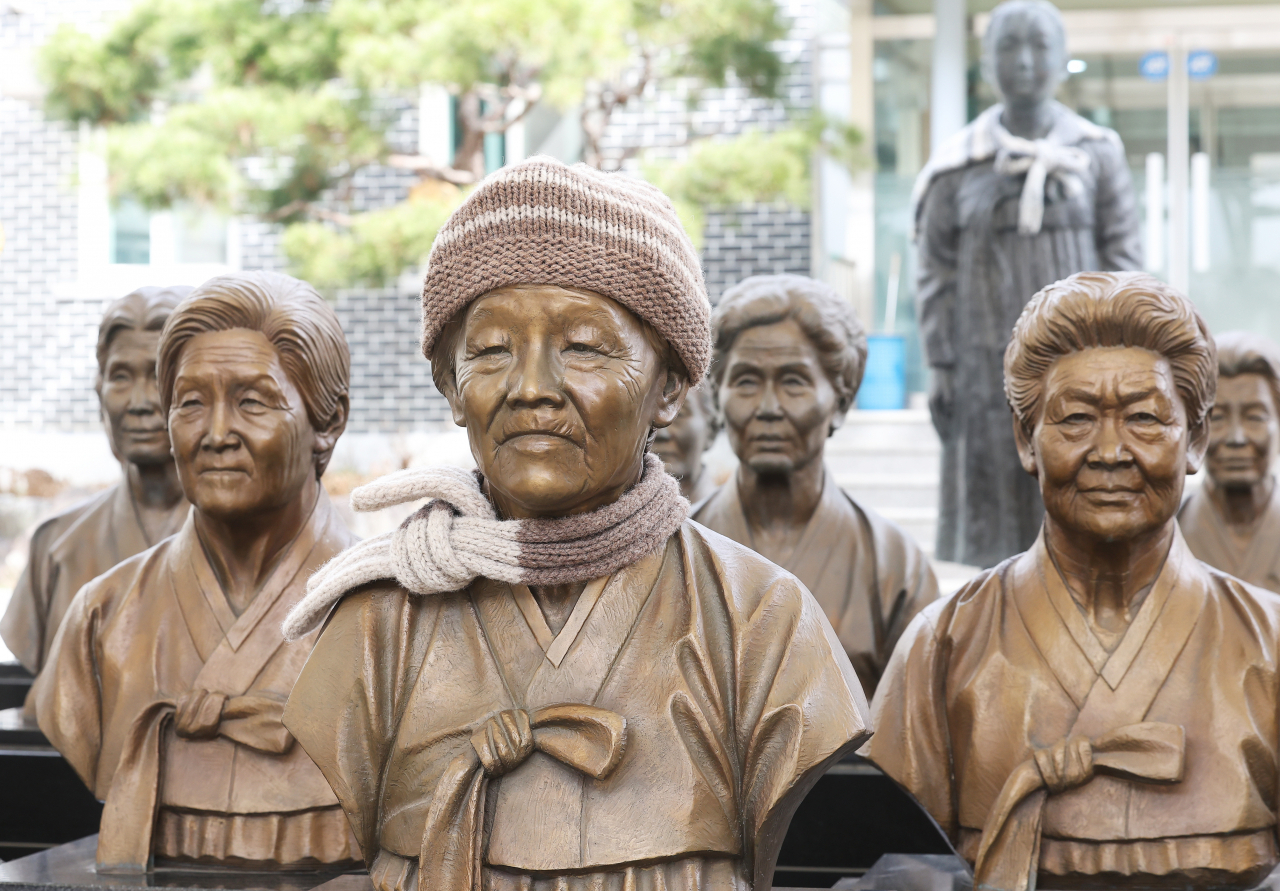
President Yoon Suk Yeol returned home with another diplomatic milestone under his belt, marking a thaw in strained bilateral relations between South Korea and Japan on Friday. Now he faces other problems regarding historic disputes with the neighboring country and a divided public.
The latest diplomatic development between South Korea and Japan came after an announcement from Seoul two weeks ago that it would launch a local foundation to pay the victims of Japan's forced labor during its 1910-1945 colonial rule. Opposition parties denounced the decision, saying that it flew in the face of the 2018 Supreme Court's ruling that ordered the Japanese companies involved to pay.
The presidential office said Sunday that Yoon's trip to Japan, which came 10 days after the announcement, was a "big success" that gave South Korea "leverage" in its relationship with Japan, as well as in international politics.
However, concerns have been fast growing on whether the decision the Yoon administration touts as a significant breakthrough for future-oriented bilateral relations would blanket other thorny issues such as those of wartime sex slaves and the Dokdo islets where the more recent seeds of public distrust against Japan sprouted.
Japan's Kyodo News reported, citing an anonymous Japanese government official, that Japan's Prime Minister Fumio Kishida urged Yoon during their summit meeting to ensure the steady implementation of a 2015 agreement on sex slaves, euphemistically labeled "comfort women." The Korean presidential office denied there were any discussions on the comfort women issue.
Eight years ago, the former conservative Park Geun-hye government reached an agreement with the Japanese government that Tokyo contribute 1 billion yen ($7.5 million) to the Reconciliation and Healing Foundation established under South Korea's Gender Equality Ministry. But three years later, the foundation was dissolved by the liberal-leaning Moon Jae-in government that claimed that the deal did not properly reflect the victims' demands.

Out of the 1-billion-yen contribution made by Japan, currently, about 5.6 billion won ($4.3 million) remains after 4.4 billion won was paid out to the victims. When the deal was reached in 2015, 36 out of 47 victims expressed their intention to accept the agreement, but 11 refused.
"The Yoon administration needs to address issues about the remaining funds and unresolved issues with the victims who refused to accept the comfort women agreement," said Choi Eun-mi, a research fellow at the Asan Institute for Policy Studies.
“The government should work to provide support and assistance to all survivors and their families in a comprehensive and sensitive manner,” she said.
Out of the estimated 220,000 individuals who were forcibly mobilized during this period, including soldiers, military employees, laborers and sex slaves, there are only 1,264 known survivors as of January.
Regarding the summit last week, Yuji Hosaka, a political science professor at Sejong University, said Korea "made a lot of concessions."
He predicted that Japan would use scientific and legal reasoning to make further demands regarding issues such as the discharge of Fukushima's wastewater into the ocean, the sovereignty of the Dokdo islets and the removal of statues to honor the "comfort women."
The professor, who became a Korean citizen in 2003, warned that if South Korea continues to respond to Japan with a political and emotional approach rather than a scientific and legal basis, they may acquiesce to Japan's "unjustifiable demands."
The Japanese government has demanded Seoul abolish a statue honoring comfort women that was erected in front of the Japanese Embassy in December 2011.
The statue is seen as a symbol of the country's determination to seek justice for the victims, yet it has also been a source of tension between the two countries. The Japanese government has argued that the statue violates the spirit of the 2015 agreement and should be removed.
During a meeting with Kenta Izumi, leader of Japan's largest opposition Constitutional Democratic Party, Izumi spoke with Yoon on several unresolved issues between South Korea and Japan, including a recent patrol plane incident and the ongoing controversy surrounding the comfort women statue.
According to reports from Kyodo, Kishida also urged Yoon to address issues involving the Dokdo islets, a group of small islets east of the Korean Peninsula that Tokyo has also claimed as part of its territory. Japan has said the issue should be resolved through the International Court of Justice.
If South Korea decides to go to the International Court of Justice, as Japan has urged, it will be an “overwhelming victory" for Tokyo, according to Hosaka.
Kim Tae-hyo, first deputy director of the National Security Office, however, denied the notion, saying the Dokdo issue was not addressed during the summit.
Amid the opposition party playing down the presidential trip's significance, Yoon's approval ratings dropped by 1 percent point to 33 percent, according to a poll by Gallup Korea on Friday.

According to the survey, 33 percent of respondents rated Yoon's performance in state affairs positively, while 60 percent assessed it negatively. Of the respondents who disapproved of Yoon's performance in office, 15 percent pointed at his handling of relations with Japan and compensation issues related to wartime forced labor.
Asan fellow researcher Choi said that there has been a "notable absence of effective persuasion and explanation by the government" to help the public understand its diplomatic relationship with Japan.
She added that while Yoon had alluded to being accountable for the issue with the mantra, "The buck stops here," it was not sufficient. “More robust efforts are needed to clarify the government's stance to the public, whether through public discourse or written statements.”







